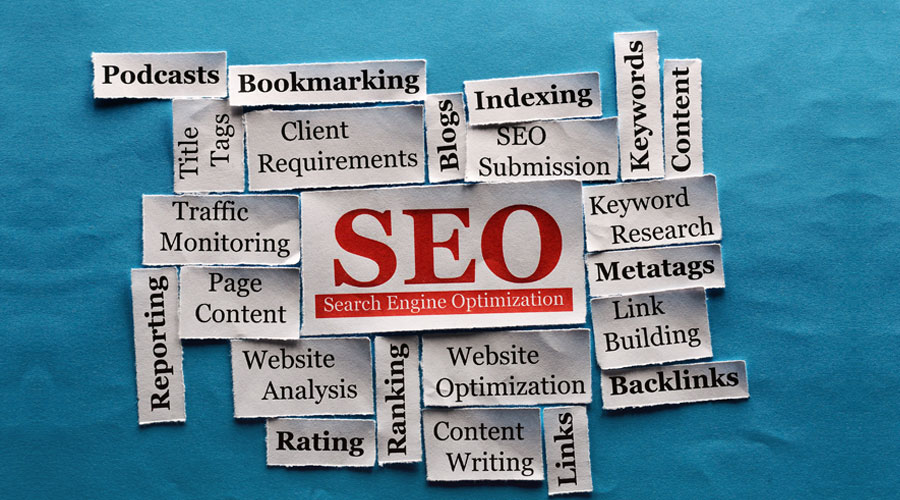In the digital landscape, Search Engine Optimization (SEO) holds the key to unlocking online success for businesses. By understanding the core principles of SEO essentials, businesses can optimize their websites for higher ranking results pages (SERPs), draws targeted organic traffic, and drive increases. This comprehensive guide is designed to shed light on the fundamentals of SEO, including the vital Google ranking factors that influence visibility and discoverability.
We will also explore the distinction between organic and paid results, unravel the concept of web crawling, and equip businesses with the knowledge to navigate the dynamic realm of search engines. Get ready to embark on a journey to maximize your online presence and outshine the competition. Here, we have covered the most essential points you need to know about SEO counting -
1. What is SEO, and why is it important to businesses?
2. What are the most vital Google ranking factors?
3. What is the difference between organic and paid SEO results?
4. What is a search engine, and can you name a few besides Google?
5. What is web crawling in the context of SEO?
Let’s begin with -
1. What is SEO, and why is it important to businesses?
Search Engine Optimization, or SEO, is a profitable digital marketing strategy that improves a website's visibility on search engine results pages (SERPs). It involves various techniques and practices to improve a website's ranking for specific keywords or phrases. The vital goal of SEO is to gain more organic or non-paid traffic to a website by ranking higher on search engine results.
SEO is crucial to businesses for several reasons
- Increased Visibility and Brand Awareness
When a website ranks high on the SERPs for keywords relevant to its business, it becomes more visible to internet users. This increased visibility helps in building brand awareness. When users repeatedly see a website in their search results, they become more aware of the brand and its offerings. - Trust and Credibility
Websites that become visible on the start page of search engine results are regularly measured more consistently by users. High rankings signal to users that the search engine deems the website as a reliable source of information. This apparent credibility can influence a user's decision to click on a link or buy the product or service. - Cost-Effective Marketing
SEO is a cost-effective advance evaluating to other forms of digital advertising like Pay-Per-Click (PPC). While PPC can drive instant traffic to a website, the cost per click can add up over time. Additionally, the traffic generated from SEO is organic, accessible, and a beneficial long-term strategy. - Better User Experience
Part of SEO involves making a website user-friendly, make sure that a website loads rapidly, is simple to navigate, and is mobile-friendly. A website that offers a good user experience will rank better on search engines, attracting more visitors and potentially increasing conversion rates. - Competitive Advantage
Most businesses have an online presence in today's digital age. Implementing an efficient SEO strategy can give a business a viable edge by serving it ranks higher than its competitors on search engine outcomes.
So, SEO is a vital digital marketing strategy helping businesses to perk up their online visibility, build brand awareness, gain trust and reliability, provide a better user experience, and gain a competitive advantage. It's a long-term investment that can bring significant payback to a business.
2. What are the most important Google ranking factors?
Decoding Google Ranking Factors: A Guide to Better SEO
Google uses many factors in their algorithm for ranking websites. However, not all aspects are created equal, and accepting the most noteworthy ones can significantly change your site's ranking. Here are some of the most crucial Google ranking factors
1. Quality Content
Content is king in SEO. Google values informative, accurate, and engaging content that satisfies the searcher's intent. Using relevant keywords, proper formatting, and regular updates can enhance content quality.
2. Backlinks
Backlinks from other websites to your own are a strong ranking signal. Google views backlinks as votes of confidence in your content. However, it's not just about quantity; the quality and relevance of the backlinks matter significantly.
3. Mobile-Friendliness
With the rise of mobile internet usage, Google has shifted to mobile-first indexing. This means Google predominantly uses the mobile version of the content for indexing and ranking. Hence, having a mobile-friendly website is essential.
4. Page Speed
Page speed is a critical ranking factor. Websites that load quickly provide a better user experience and are favored by Google. Both the desktop and mobile loading speeds are taken into account.
5. Secure Website (HTTPS)
Google prefers secure websites. (HTTPS) Hypertext Transfer Protocol Secure is an internet communication protocol protecting the confidentiality and integrity of data between the user's computer and the site.
6. User Experience
Google uses user interaction signals to determine ranking. These may comprise bounce, click-through rate (CTR), and dwell time. A positive user understanding on your website can direct to enhanced rankings.
7. Domain Authority
This metric developed by Moz forecastd how good a website will rank on search engine result pages. It is determined by combining a number of characteristics like connecting root domains and the all the fvlinks, into a single DA score.
8. Social Signals
While not a direct ranking factor, there's a link between social and ranking position. A strong social presence can enhance your SEO efforts.
9. Technical SEO
This includes various non-content elements of SEO, like site speed, mobile-friendliness, indexing, crawlability, site architecture, structured data, and security. Good technical SEO improves both user and search engine experience.
3. What is the difference between organic and paid SEO results?
Organic Results vs Paid Results in SEO: A Comparative Analysis In Search Engine Optimization (SEO), knowing the difference between organic and paid results is essential. Both play significant roles in how your website is found online but differ in several ways.
Organic Results
Organic results, also known as natural results, are listings that emerge in search engine results pages (SERPs) due to their significance to the search terms, as determined by the search engine's algorithm. Organic search results are influenced by SEO, which includes optimizing your website and content with appropriate keywords, high-quality backlinks, and an accessible website design.
The benefits of organic results include the following
- Cost-Effectiveness
Unlike paid results, organic traffic is essentially free. You don't pay for each click or impression. - Long-Term Results
With consistent SEO efforts, your website can maintain its position in organic search results over the long term. - Trust and Credibility
Users often trust organic results more than paid results, as they are perceived to be more authentic and less influenced by advertising.
Paid Results
Paid results, also known as Pay-Per-Click (PPC) advertising, are the effective listings showing at the top or bottom of the SERPs for that advertisers pay a fee each time the ad is clicked. These consequences are not influenced by SEO but by paid search advertising plans.
The benefits of paid results include the following
- Immediate Visibility
Paid results can provide immediate visibility on the SERPs, as your ad can appear at the top of the results page as soon as your campaign goes live. - Targeting Options
PPC platforms offer various targeting options, including keywords, demographics, location, and time of day, allowing you to reach your specific audience. - Measurable Results
With PPC, you can measure everything from the cost, profits, views, clicks, visits, and more. This allows for quick adjustments to optimize your campaign.
Both organic and paid results have unique advantages and can be used to maximize your online visibility. Organic results are ideal for long-term success, while paid results can quickly boost visibility and traffic
4. What is a search engine, and can you name a few besides Google?
Understanding Search Engines and Exploring Alternatives to Google A search engine is a software system designed to conduct web searches, which means searching the World Wide Web systematically for certain information specific in a textual web search query. The search results are usually presented in a line of outcome, often entitled search engine results pages (SERPs). The information may be a combined link to images, research papers, web pages, videos, infographics, articles, and other types of files.
While Google is the most admired and extensively used search engine worldwide, users can pick numerous other search engines.
Bing
Bing is a web search engine operated and owned by Microsoft. It offers various search services, including web, video, image, and map search products.
Yahoo
Yahoo Search is a web search engine owned by Yahoo, powered by Bing. It offers a rich interface and various options for personalized search experiences.
DuckDuckGo
DuckDuckGo is an internet search engine that emphasizes shielding searchers’ privacy and avoids the filter bubble of bespoke search results.
Baidu
Baidu is a Chinese international technology company focused on Internet-related services, products, and artificial intelligence. It is one of the prime AI and internet companies in the globe. Baidu is the most admired search engine in China.
Yandex
Yandex is a Russian multinational corporation specializes in Internet-related services and products. It is Russia’s largest search engine.
These options may be worth considering depending on your definite needs and concerns like privacy.
5. What is web crawling in the context of SEO?
Web Crawling in SEO: An Essential Process for Visibility
Web crawling is also called spidering or spider crawling. It is an effective method used by search engines for visiting and downloading a page from the web to index it. It involves software called a web crawler, or spider, that scans the internet in a methodical and automated way.
In the context of Search Engine Optimization (SEO), thoughtful web crawling is vital. Here's why
- Indexing
Web crawling is the first step in indexing. After reading a webpage, a web crawler copies it and adds the URL to the index. This lets the search engine know what's on the page and when to illustrate it in the search results. - Discovering Updated Content
Web crawlers regularly revisit websites to check for updated or new content. This includes new webpages, changes in webpages, new backlinks, etc. This makes sure that the search engine's index is the latest. - Understanding Site Structure
Web crawlers navigate through websites by following internal links (within the same website) and external (to other websites). This helps the search engine recognize the structure of the website and the relationship between various pages. - Ranking
The information gathered by web crawlers is used by search engine algorithms to rank websites. This includes information about the content, the meta tags, the backlinks, and more.
To ensure effective web crawling, websites should be well-structured, have a sitemap for guiding crawlers, and use robots.txt files to direct crawlers away from certain pages. Additionally, creating fresh, high-quality content and earning reputable backlinks can help increase the frequency of crawler visits. Web crawling is a fundamental process in SEO that enables search engines to discover, index, and rank websites. Understanding how it works can help optimize your website for better visibility and higher rankings.




